Facts about Sweden! We have sniffed out and collected interesting information about our own country that you may or may not have known about. Enjoy!
Table of contents
Facts about Sweden
Let's start with some general background information about our country, which as a Swede you probably already know:
Sweden is a constitutional monarchy and our King Carl XVI Gustaf has no real political power, as the Riksdag is the country's highest authority. Sweden is a member of the EU, but has kept the Swedish krona as its currency. It is not a member of NATO (yet), May 2022.
Sweden is historically divided into three regions: Svealand, Götaland and Norrland. Lakes and large rivers make up almost ten per cent of the country's surface area and 69 per cent is forest. Sweden shares borders with Norway in the west and Finland in the north-east. Sweden also has coasts with its Nordic neighbours Denmark, Norway, Åland and Finland.
1. Swedes have special days for many things.
You should keep track of many special days, but it also depends on where you are in the country. Here are some days you shouldn't forget.
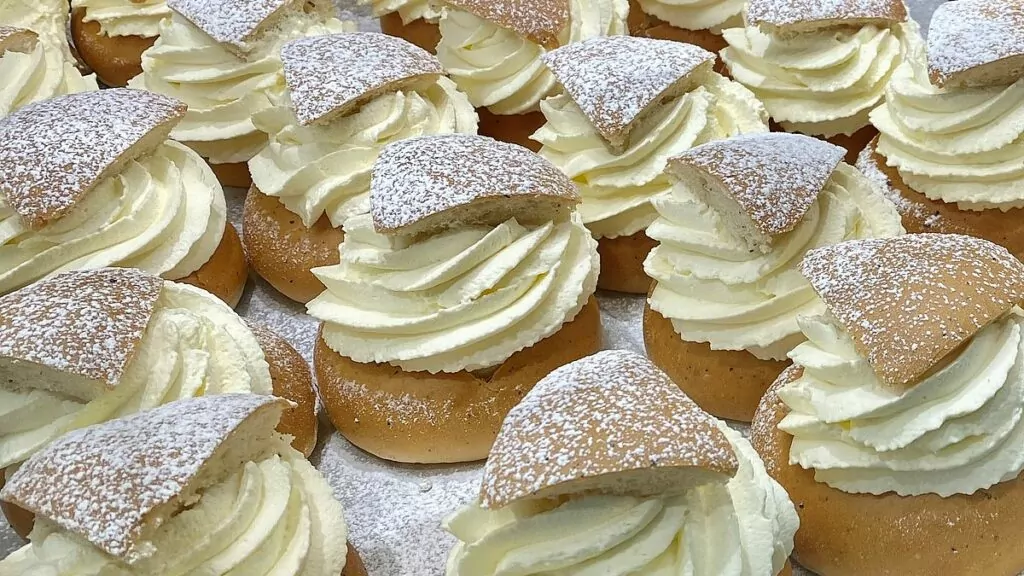
2. the Swedish upper class spoke more than Swedish for many centuries
- In the 16th and 17th centuries, German was the language of the educated.
- In the 18th and 19th centuries, French was the language of the upper classes.
- in the 20th century, English became the major language.
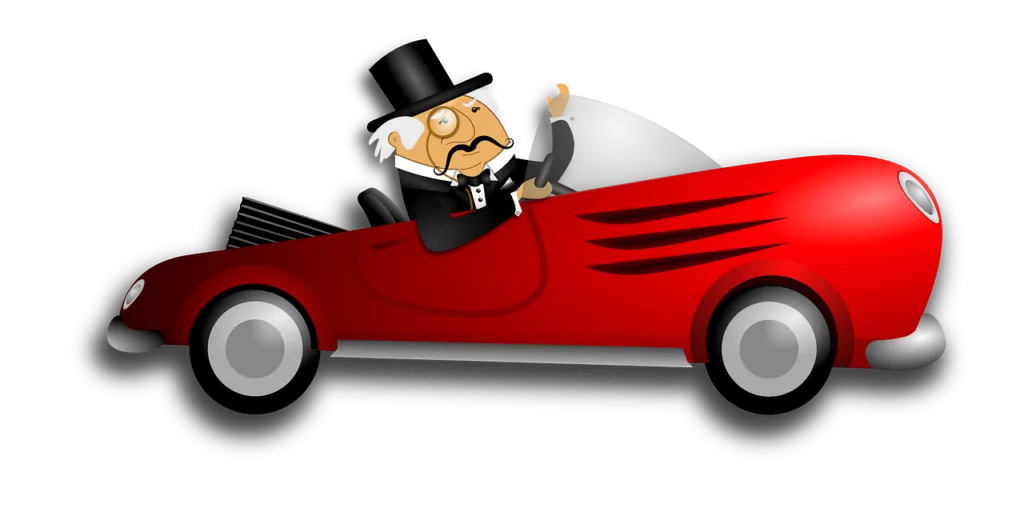
3. Kiruna is Sweden's largest municipality
The municipality of Kiruna, located in Lapland in the far north of Sweden, covers 20 000 square metres. The municipality is as big as the counties of Skåne, Blekinge and Halland combined.
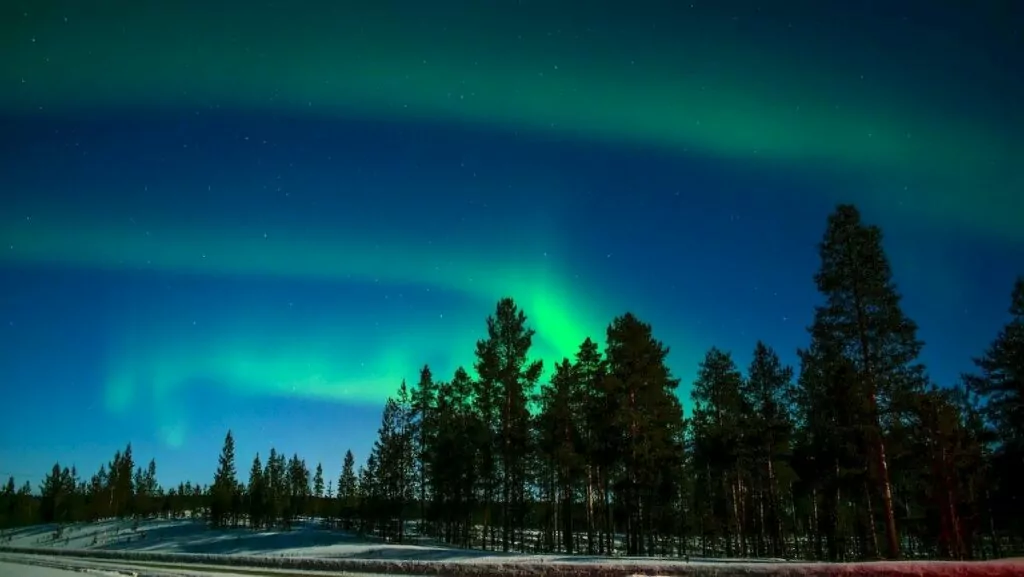
4. Motala has the longest lake shore in the Nordic countries.
Varamo baths in Motala i Östergötland is the longest lake bathing area in the Nordic countries, with 5 kilometres of fine-grained, shallow sandy beach. We have of course visited the beach and it is top class.
5. Sometimes it is only night or only day in Kiruna.
In Kiruna, there is light 24 hours a day for two months in summer, which is called the midnight sun. From around 12 December to 31 December, there is no sun at all, which is called polar night. Half of Lapland is above the Arctic Circle and therefore has polar nights.
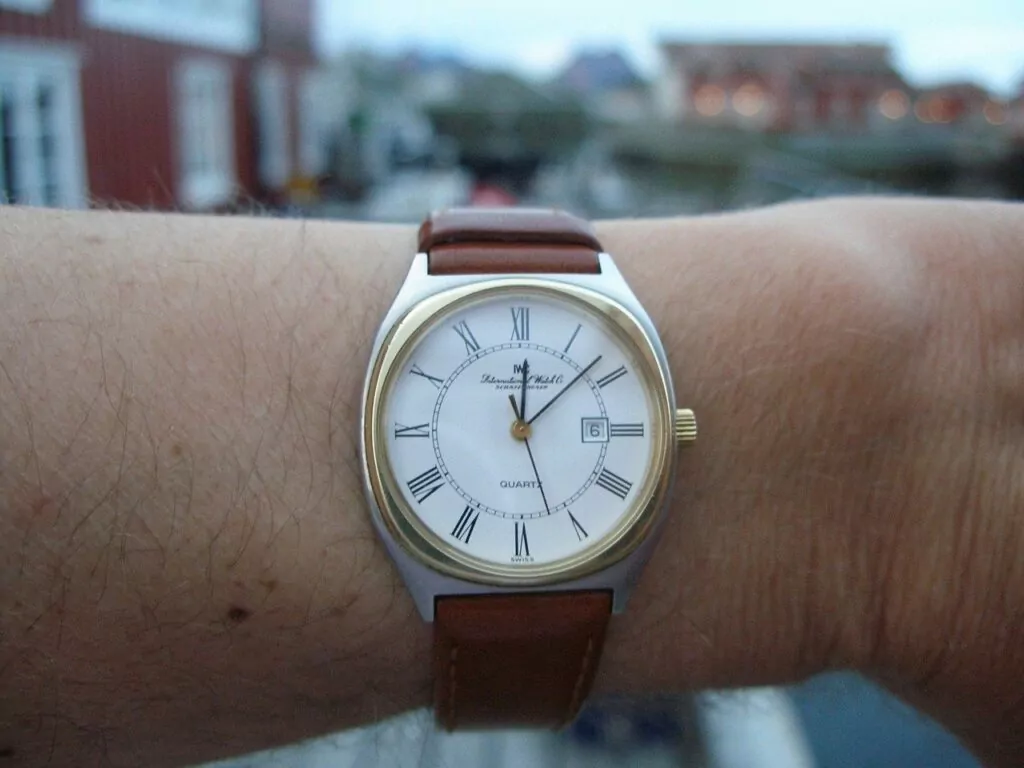
6. The Vasa ship, the pride of Sweden, sank after 1300 metres in 1628
The architect and master shipbuilder Henrik Hybertsson died during the construction of the Vasa carpet, so there was no one to blame for it being misbalanced. All the lead that would be in the bottom was reduced so that the guns could be many. At the first wind, the Vasa lay on its side. Attempts to salvage the ship in the 17th century failed, and it wasn't until 1961 that the Vasa Ship was recovered and is now located on Djurgården in Stockholm.
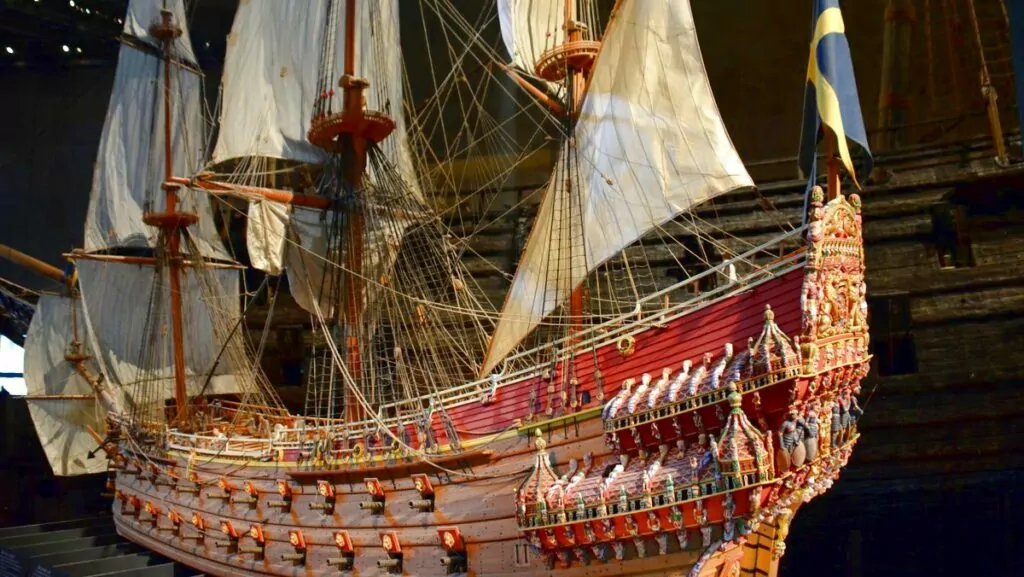
7. You can get protection from crowberries
There are crowberries and northern crowberries, the latter being from Norrland and a little sweeter. The crowberry is tart and a bit special in its flavour, but it is very good in jams and juices. The crowberry is rich in fibre and has more protective antioxidants than any other berry in Sweden.
8. Göta Canal is Sweden's largest construction project of all time
Göta Canal is a 190.5-kilometre canal dating from 1832, which runs through Götaland in Sweden. The canal was founded by Baltzar von Platen and built by 58,000 soldiers. A total of 87.3 kilometres of the canal was dug by hand or blasted. There is a total difference in level of 91.8 metres in the canal, with a total of 58 locks and two aqueducts. Today, the canal is a well-known tourist destination and more than 3 million people visit it every year.
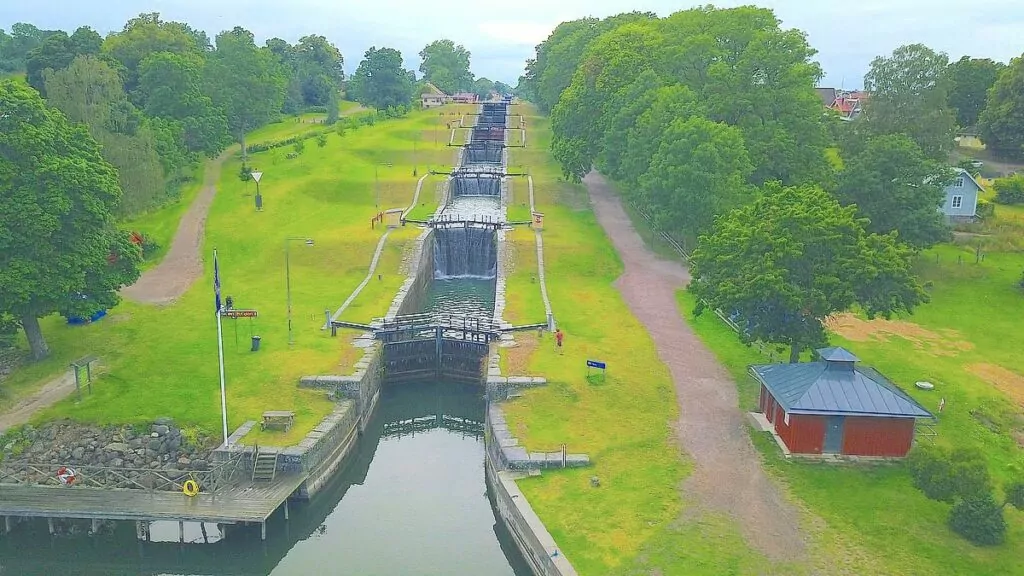
9. Norrköping has the most rock carvings in the world within its city limits
In Himmelstalund in Norrköping you will find no less than 7000 rock carvings dating from around 1500 BC. Here you can find ships, weapons, people, soles of the feet and the like carved into the rock.
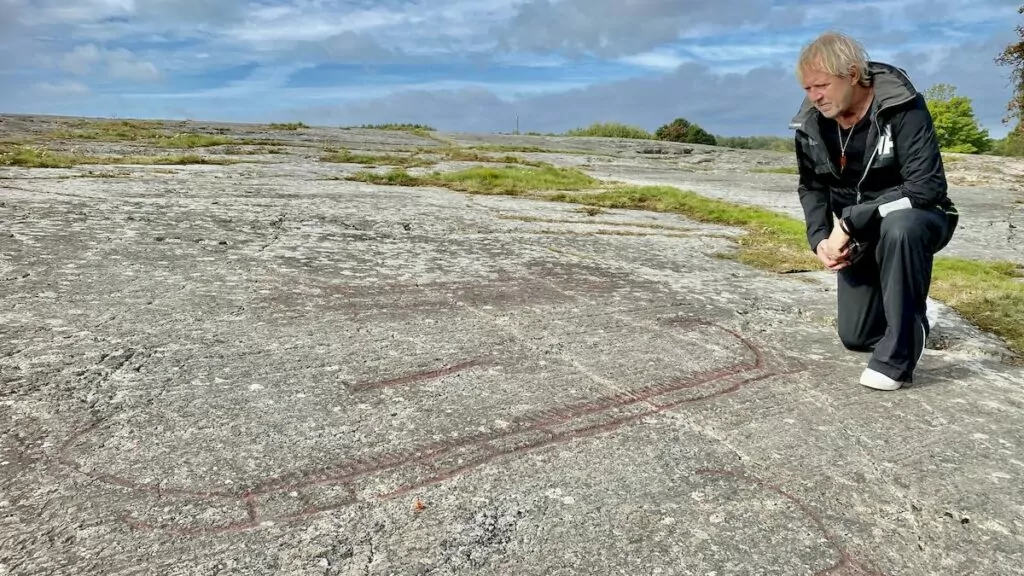
10. Surströmming, the joke of the world ... Can you eat it?
Surströmming is herring preserved by fermentation. When Gustav Vasa waged war in the 16th century, there was a salt shortage and salt was needed to freeze food for a long time during the winter. They had to come up with a new method to avoid starving to death, and that's when surströmming was born. Many people find the smell and flavour disgusting, but some people love it. Those who eat the speciality (mainly around High coast) make it in a pinch with buttered pieces of flatbread, mashed almond potatoes and sour cream.
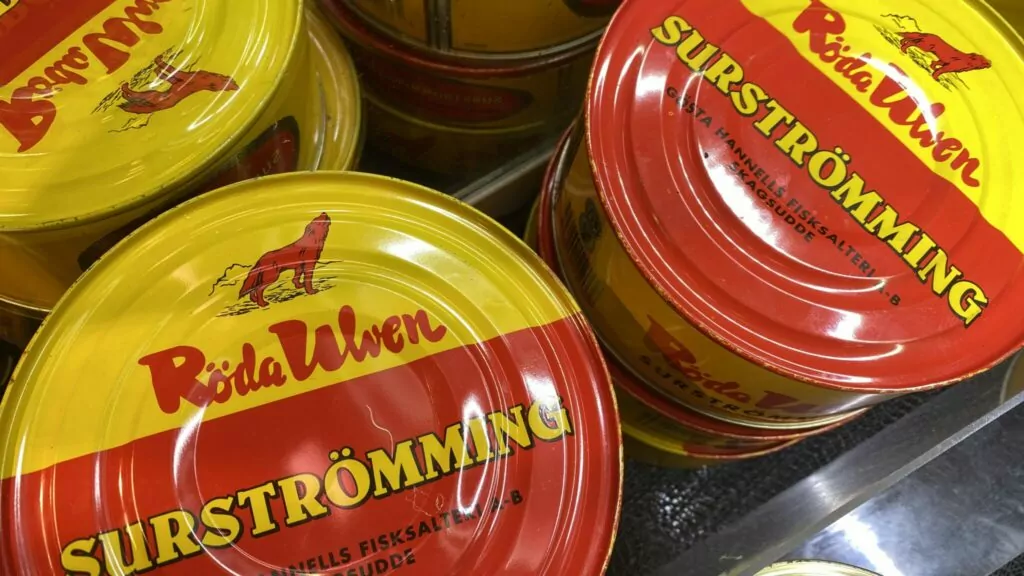
11. Sweden has many different dialects
The most common classification of dialects is organised into six major areas: Southern Swedish, Gothic, Swedish, Gotlandic, Northern Swedish and Eastern Swedish. Most of the time we understand each other without problems, but there can also be challenges sometimes...

12. Karlsborg Fortress became an unfashionable fiasco
Karlsborg Fortress was supposed to be built in 10 years, but it took 90 years to complete. When the fortress was finally completed in 1909, it was already outdated as weapons and technology had evolved. Today, the fortress is used for military training - and you can also visit the fortress as a tourist.
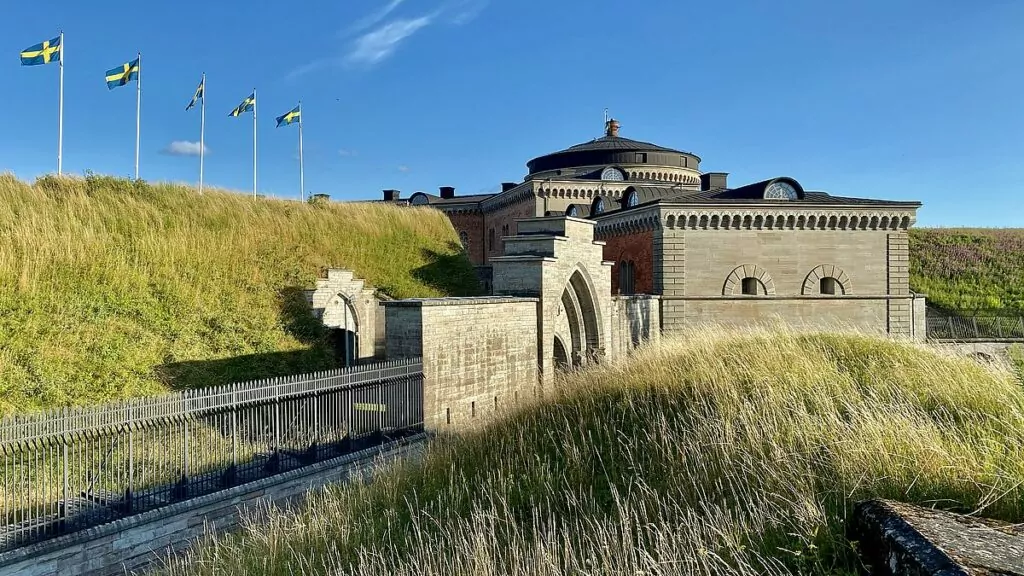
13. Sweden is the most moose-dense country in the world
Approximately 300 000 - 400 000 moose are found in Sweden. Around 100,000 animals are shot annually and growth is around 100,000 per year. Moose live almost their entire lives alone.
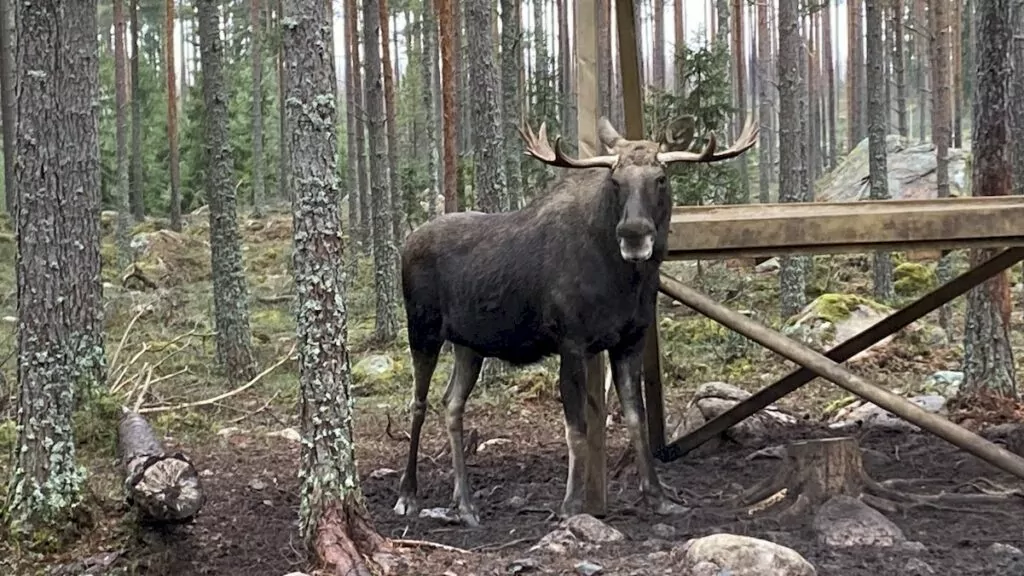
14. The Nobel Prize was awarded for the first time in 1901
The most famous Swedish inventor is Alfred Nobel (1833-1896), who revolutionised blasting technology. He invented dynamite in 1866 and patented a total of 355 inventions during his lifetime. As one of the richest people of his time, he left a will in which he gave the Nobel Prize to Sweden. Today, it is the world's most famous prize, which has been awarded over 500 times.
15. A Swedish king was not responsible for the Stockholm bloodbath of 1520.
Sten Sture the Younger fought and died in a battle against Christian II of Denmark and became King of Denmark and Sweden. Six months later, when Kristian (known as Kristian the Tyrant) was crowned in Old Town In 1520 in Stockholm, he locked all the gates and beheaded 84 Swedish people, mainly from the nobility.
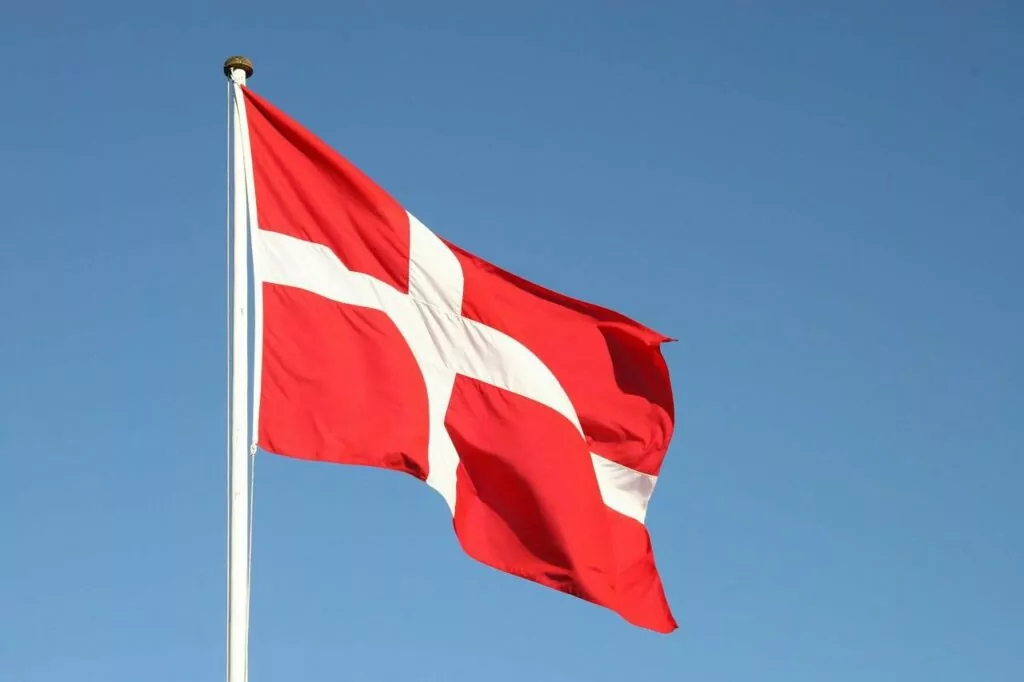
16. Swedish became the main language in 2009
The Swedish language was not legally recognised as the main language of Sweden until 2009. There are also five national minority languages: Finnish, Meänkieli, Sami, Romany and Yiddish.
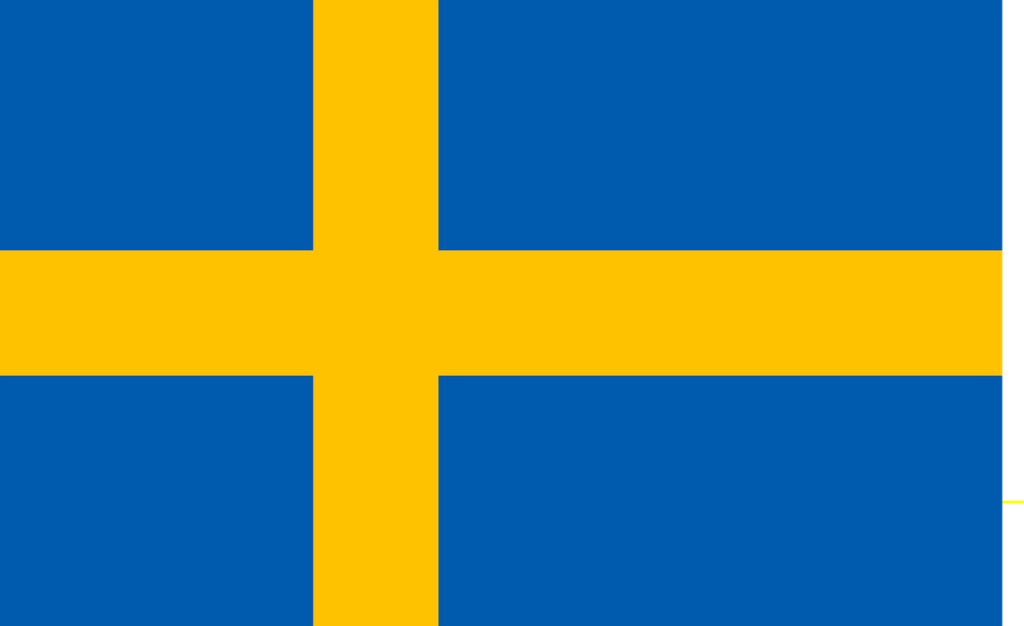
17. Swedish Sveaborg in Finland and the biggest betrayal in Swedish history?
When the construction of the huge naval fortress Suomenlinna in Helsinki begun by Augustin Ehrensvärd in 1748, Finland was part of Sweden. In 1788, the fortress was put to the test when it was used as a base in Sweden's naval war against Russia. During the Swedish period, the nobility hung out on the islands, and exclusive parties followed one another.
Suomenlinna is one of the world's largest castles and home to the world's oldest and then largest dry dock. Suomenlinna was considered impregnable, but in 1808 Commander Cronstedt opened the gates and let the Russians in. 7000 men, 2000 cannons, the archipelago fleet of 200 boats, tonnes of food and 50 years of construction. It is perhaps the largest betrayal in Swedish history. Today, the site is a UNESCO World Heritage Site since 1991.
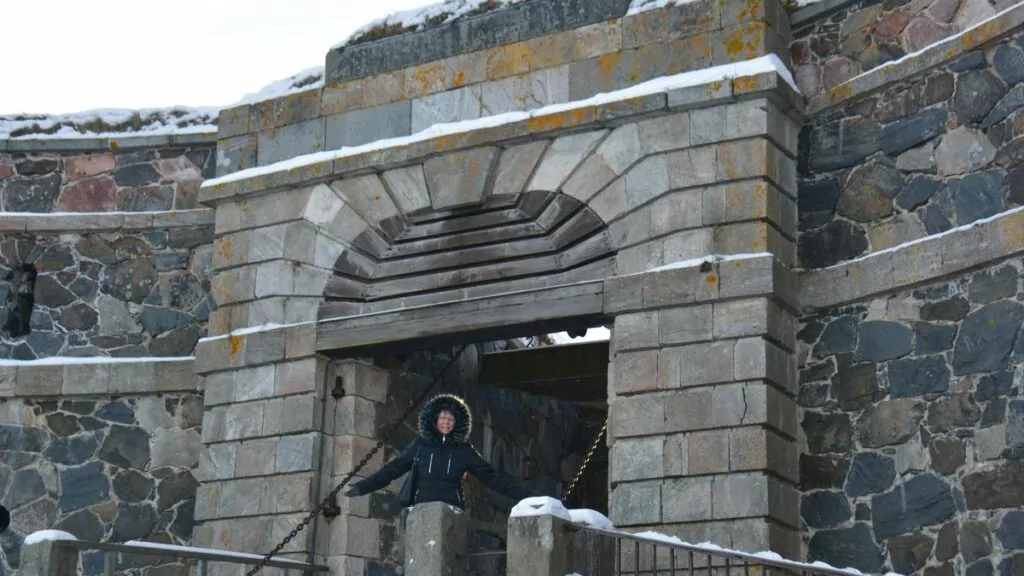
18. Sweden was the first country to ban infanticide in 1966.
Since 1966, it has been illegal to spank (hit) children, making Sweden the first country in the world to legislate against spanking. Since then, 59 other countries have done the same, with France being the latest in 2019.
19. Sweden's first hamburger was served in Helsingborg in 1955.
The first hamburger in Sweden was served at the H55 exhibition in Gothenburg in 1955. The first permanent burger bar was Burger-Grill in Helsingborg, which was inaugurated in 1956 by none other than Prince Bertil.
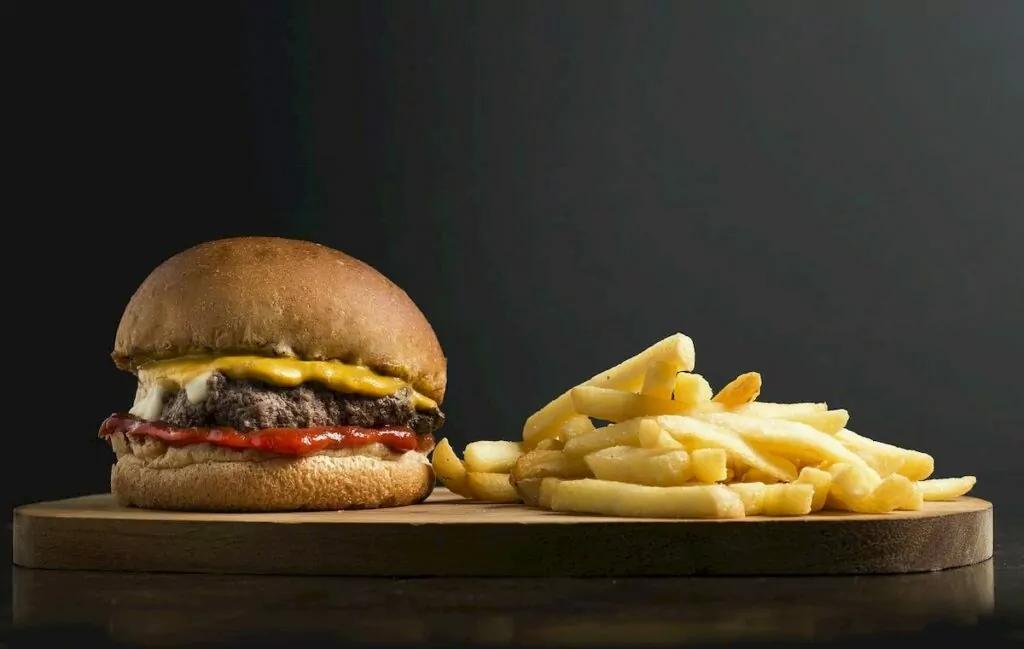
20. Sweden has 15 Unesco world heritage sites
There are no less than 15 world heritage sites in our country. Listed here are UNESCO World Heritage Sites in Sweden:
- Struve's meridian arc (chain of mapped measurement points)
- Laponia (wilderness area)
- Gammelstad church town (from the 14th century)
- High coast (the great land uplift)
- Hälsingegårdarna (19th century in Hälsingland)
- Falun and Kopparbergslagen (mining in Sweden)
- Engelsberg Mill (industrial facilities from the 16th-18th century)
- Birka and the courtyard (Viking remains between the 7th and 9th centuries)
- Drottningholm Palace area (castle, theatre and castle park)
- Forest cemetery (cemetery architecture in Stockholm)
- The Tanum rock carving area (unique rock carvings)
- The Hanseatic city of Visby (on Gotland with impressive ring wall)
- Grimeton radio station (Radio transmitter from the 1920s)
- The agricultural landscape of southern Öland (human settlement)
- The naval town of Karlskrona (European planned naval town)
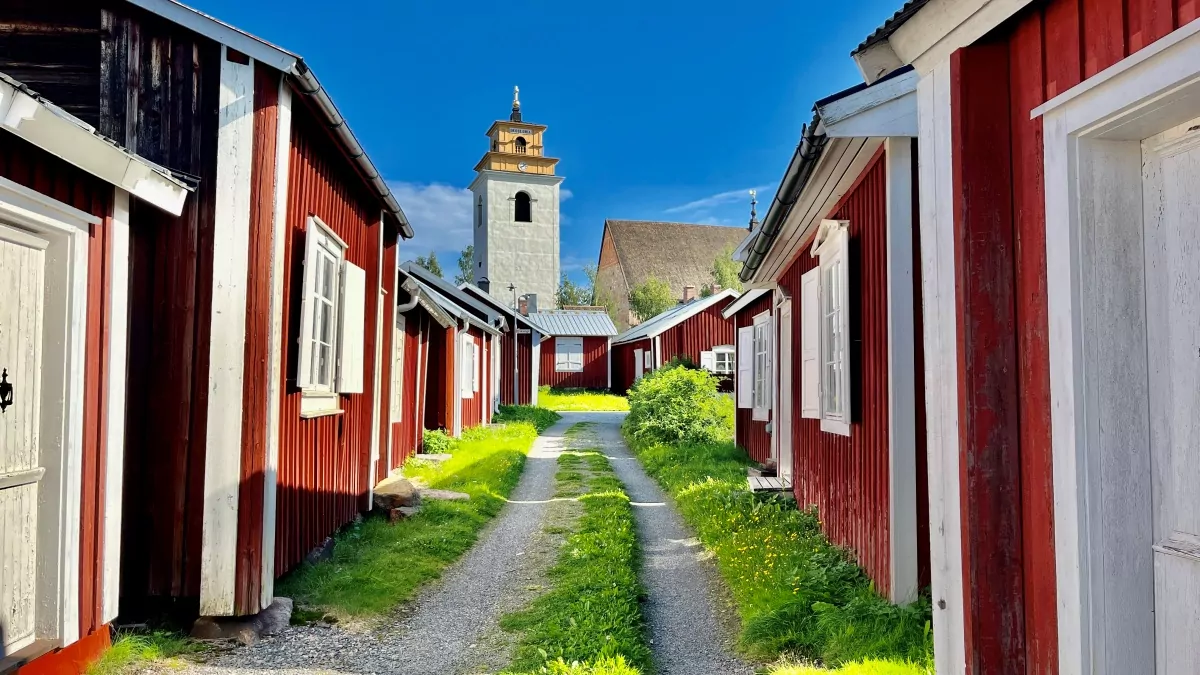
21. Wrångebäcksosten is Sweden's oldest registered cheese brand.
The hard cheese "Wrångebäck Sweden" from Almnäs was registered on 8 April 1889 and is still available, mainly in Västergötland but also in Östermalm in Stockholm. The cheese is fantastic!

22. Sweden has the only James Bond museum in the world
Sweden has the only James Bond Museum in the world, and if anyone thinks it's a small collection, they're very wrong. Gunnar Schäfer, who today also carries the names James Bond in his passport, started collecting James Bond items at the age of 8. Today, the museum contains most things from the films, such as gondolas, hovercrafts, motorcycles, aeroplanes, cars, dresses from the Bond girls, swimming trunks, champagne, and hundreds of other things, in Nybro in Småland.

23. North Korea owes Sweden more than €3 billion.
In 1974, North Korea ordered 1,000 Volvo Model 144 cars, Altlas Copco drilling machines, Asea ship equipment and several Tylö saunas on credit. The country has still not paid what it owes.
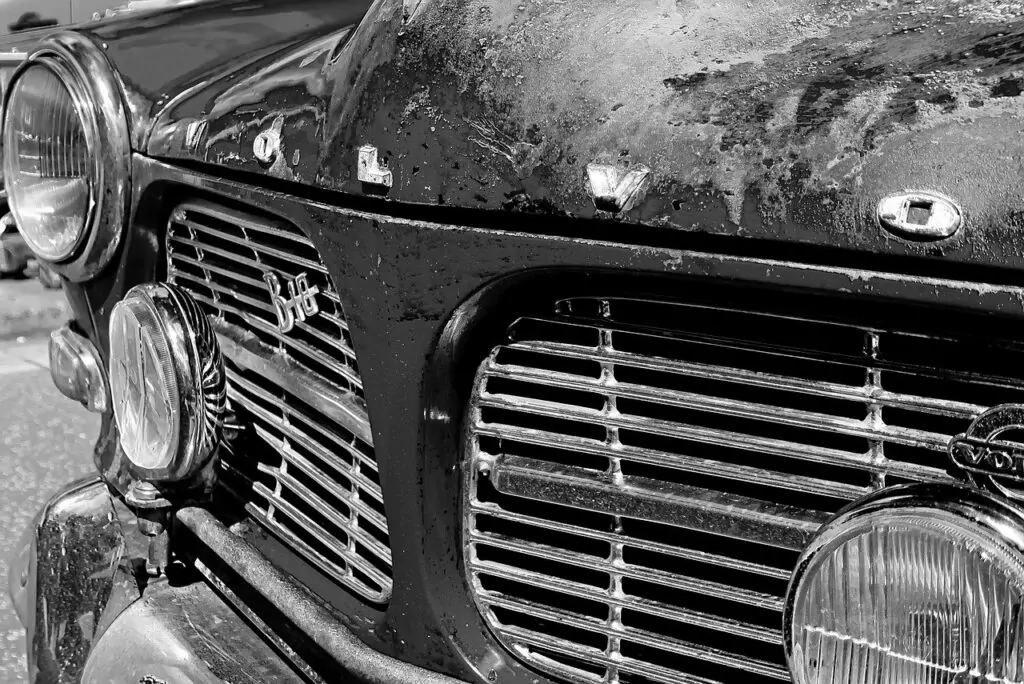
24. 6 June National Day, but why?
- In 1983, 6 June officially became Sweden's national day. Before that, this day was simply 'Swedish Flag Day'.
- National Day commemorates the day Gustav Vasa was elected King of Sweden on 6 June 1523.
- Sweden became a united country, breaking the Kalmar Union and adopting a form of government on 6 June 1809.
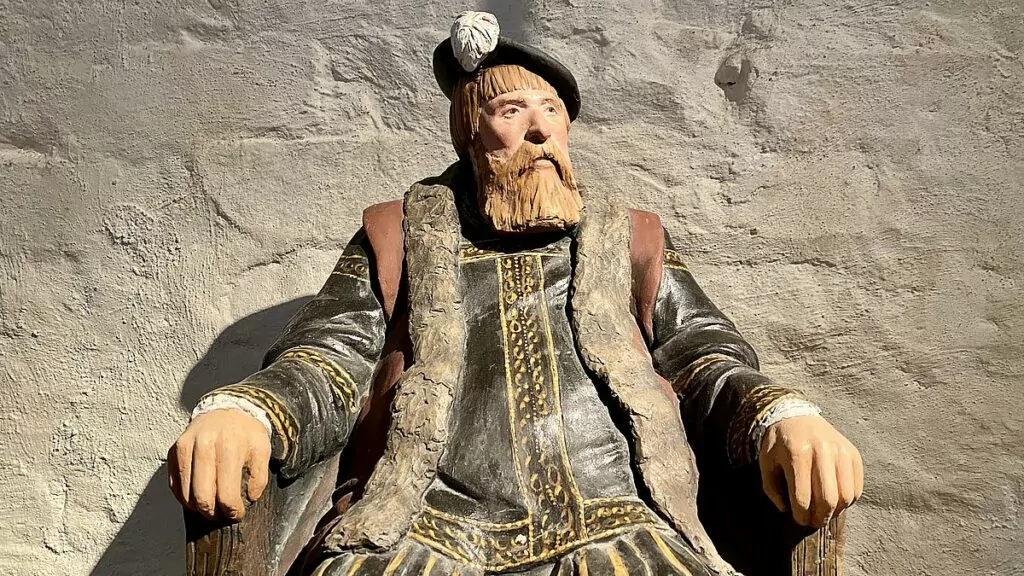
25. The Kosterhavet National Park is the only marine national park in Sweden.
Kosterhavet National Park in Bohuslän is Sweden's first marine national park. It is home to many animal species and one of two Swedish coral reefs, but also islands, islets and skerries. In addition to Kosterhavet, there are 29 other national parks in Sweden

26. Swedish citizens find it easy to travel
Sweden, Japan, Singapore and Germany are some of the countries in the world where residents can access the most countries in the world with their passport without having to apply for a visa. Currently, the Swedish passport is the sixth best in the world, allowing us to enter 188 countries without a visa. Japan tops the list with the ability to travel without a visa to 193 countries.
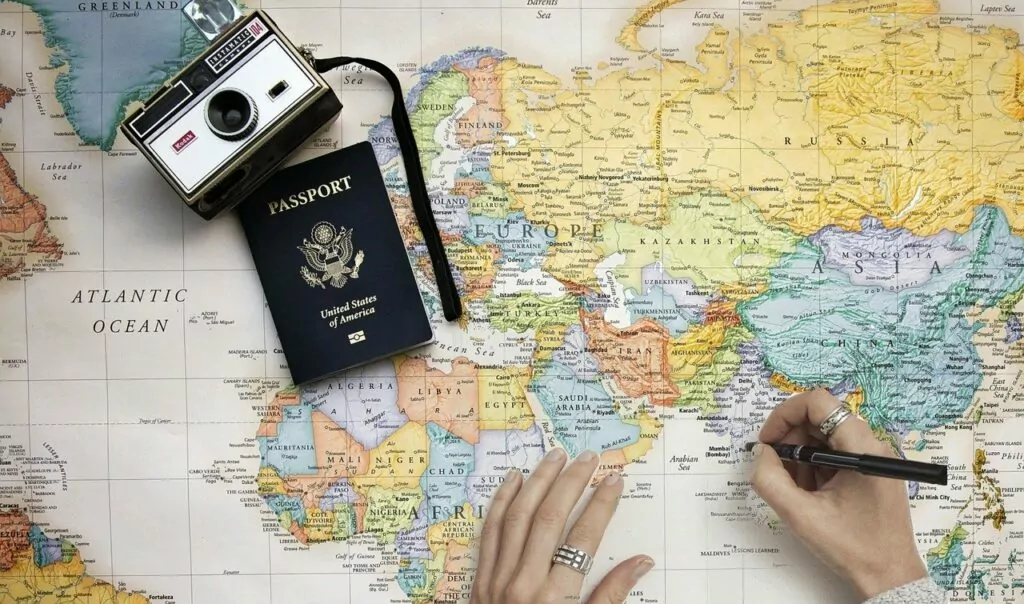
27. Sweden has the most patents per capita in Europe
Sweden has the most patents per capita in Europe. Some of Sweden's most famous inventions are...
Refrigerator
The dreamer Baltzar von Platen (1898-1984) (not to be confused with the famous canal builder of the same name) most famous invention was the refrigerator. The refrigerator was a success and Electrolux hired von Platen and his colleague Carl Munters to further develop the refrigerator. Sales took off and were one of the reasons why Electrolux became a recognised brand.
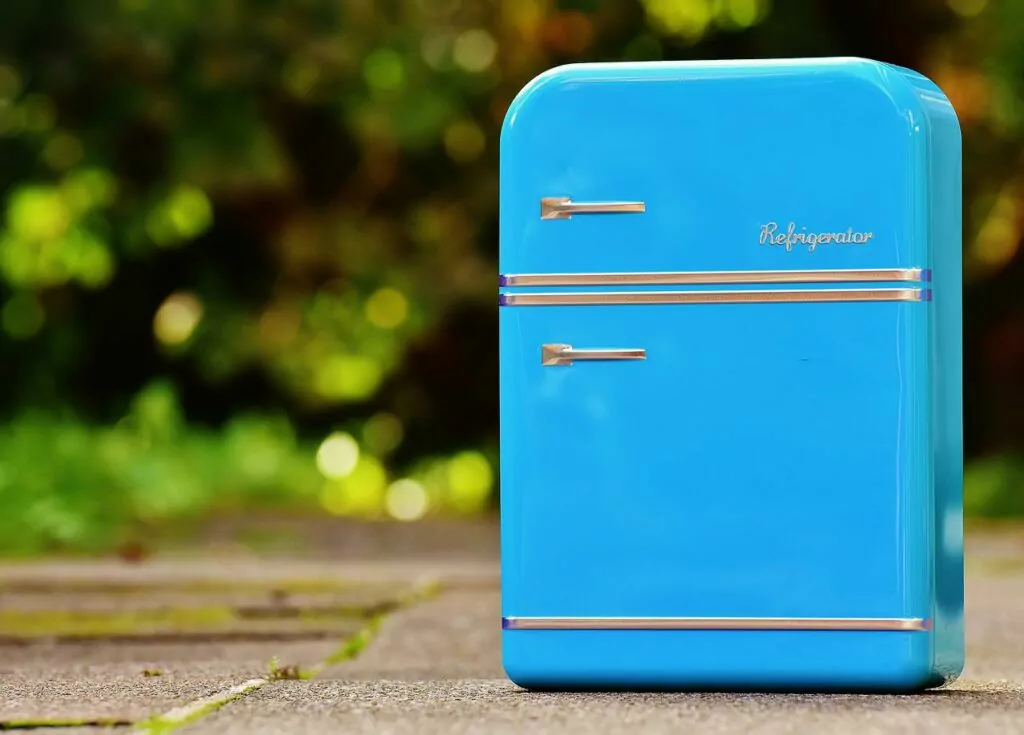
The agave guy
The AGA lighthouse is a type of automatic lighthouse invented by Gustaf Dalén (1869-1937) in the early 20th century. The name comes from his company AB Gas-ackumulator (Aga AB) which manufactured lighthouses. During his lifetime Gustaf Dalén produced 99 patents and in 1912 he was awarded the Nobel Prize in Physics.
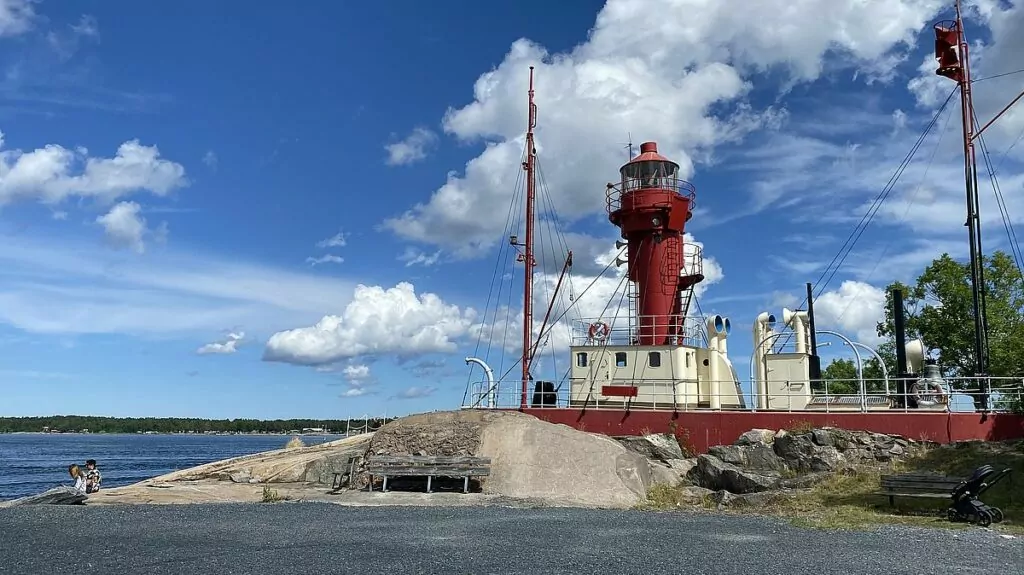
Dry milk
Maria Johanna 'Ninni' Kronberg (1874-1949) was a Swedish inventor whose patent for powdered milk laid the foundation for the baby food company Semper AB. Dry milk was invented in the early 20th century, but Ninni improved the technology and received her first own patent in 1927 and the second in 1937.
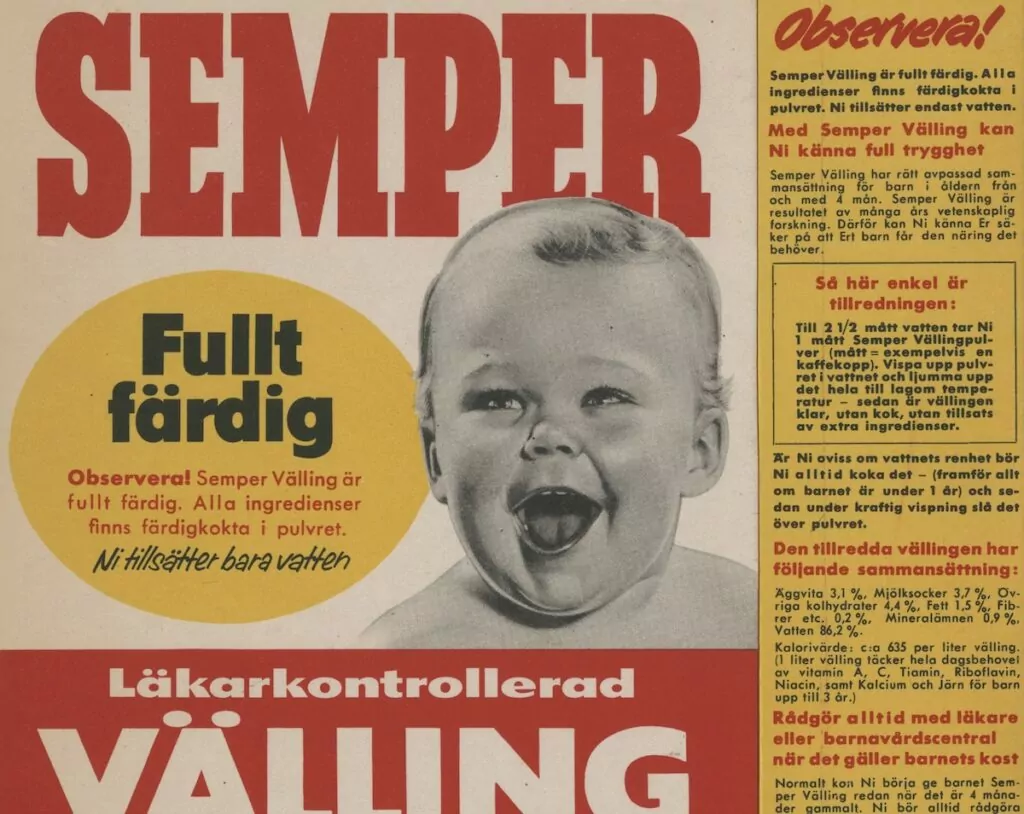
The Celsius temperature scale
Anders Celsius (1701-1744) was a Swedish scientist and astronomer active in Uppsala, where he founded Sweden's first astronomical observatory in 1741. However, he is best known for the 100-degree Celsius temperature scale that is used in thermometers all over the world. Except in the US, where the Fahrenheit scale is used.
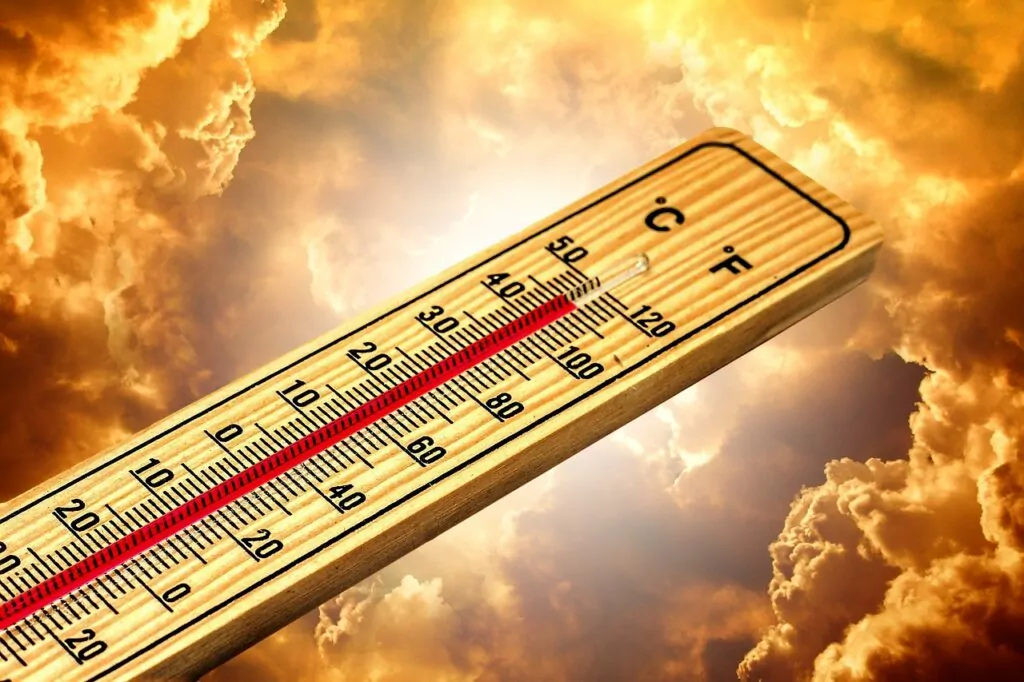
Tetra Pak
Tetra Pak is known worldwide and is the best-selling beverage package. Founded in 1951 by Ruben Rausing (1895-1983), the company is named after the tetra-shaped milk carton that is still often found in miniature at coffee machines. Beverage packaging has made Ruben Rausing one of the richest people in Sweden.
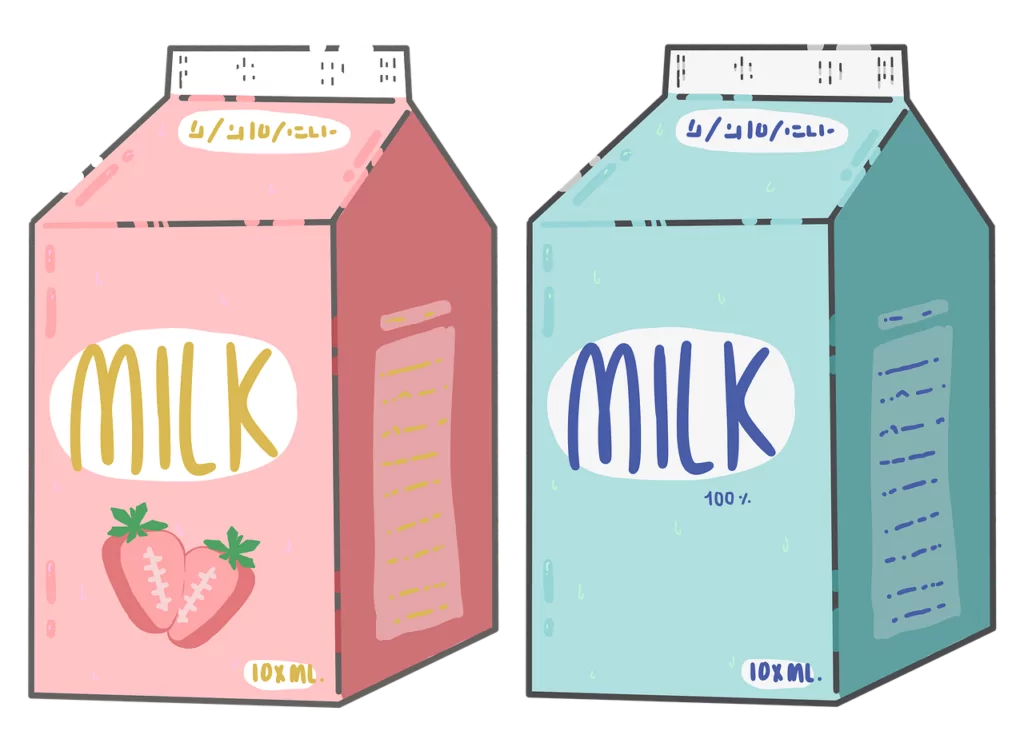
Spherical ball bearing
The spherical ball bearing was invented by Sven Wingquist (1876-1953). He patented the design and in 1907 he founded the company Svenska Kullagerfabriken, SKF, which today employs over 43 000 people worldwide.
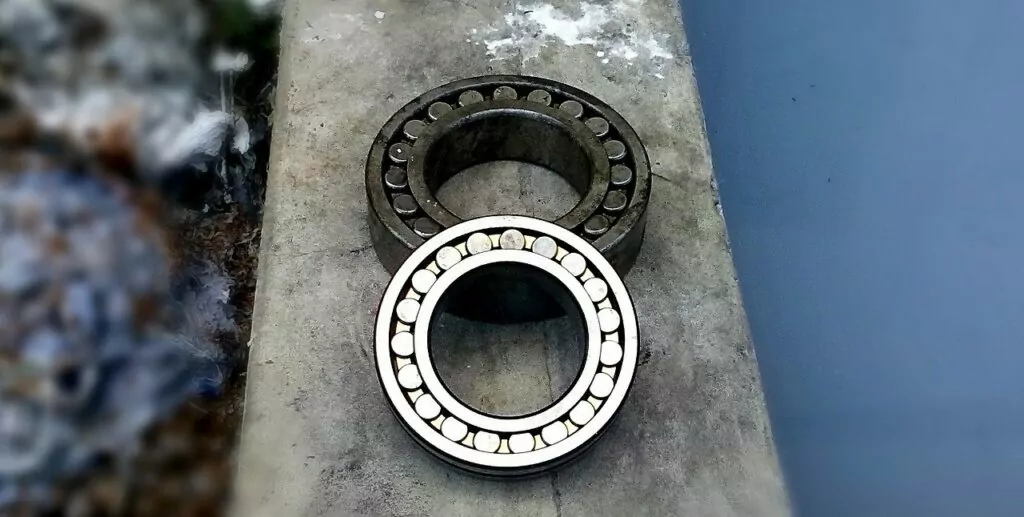
Pacemaker
The world's first pacemaker implanted in a human being was manufactured in 1958 in Sweden by Rune Elmqvist (1906-1996) and implanted the same year by cardiac surgeon Åke Senning (1915-2000). Arne Larsson, the patient's name, had a severe heart defect but thanks to the pacemaker he lived to be 86 years old.
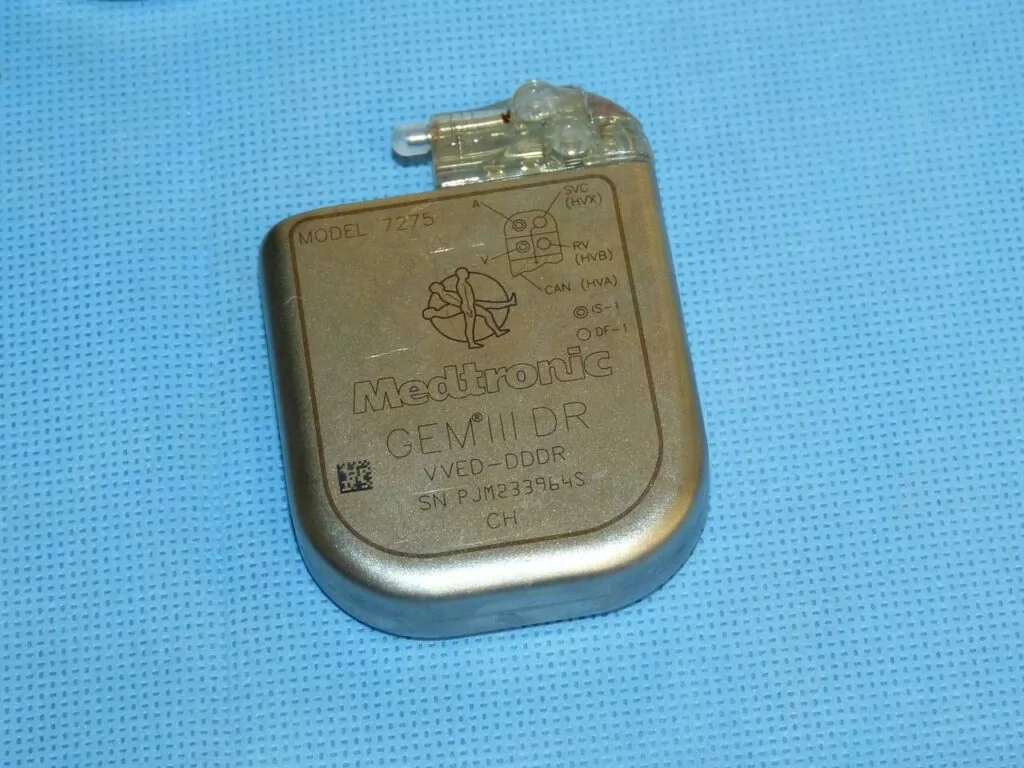
Wrench and pipe wrench
Two of Johan Petter Johansson's (1853-1943) inventions were the pipe wrench and the spanner. These two have made him world famous and they are still sold all over the world today. To date, 100 million spanners have been produced and sold under the Bacho brand.
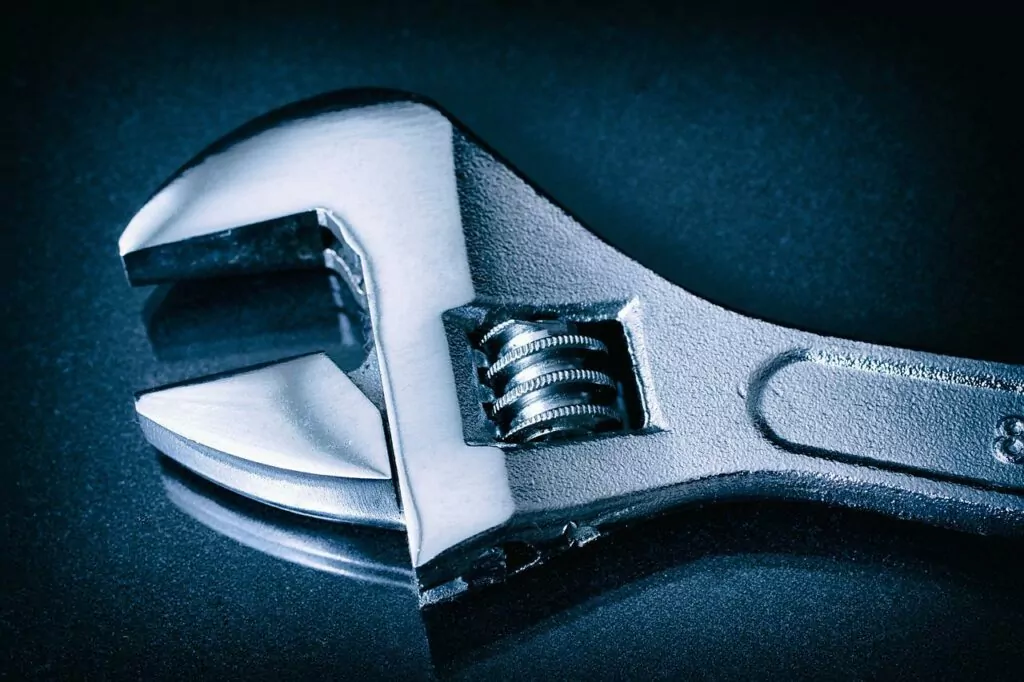
The safety match
The inventor of the safety match was Gustaf Erik Pasch (1788-1862). His match couldn't be lit against anything, but had to be lit against a special disc. Svenska Tändsticks AB which was founded by Ivar Kreuger (the Match King) almost took over the world before he killed himself in Paris. The company became Swedish Match AB much later (1992).
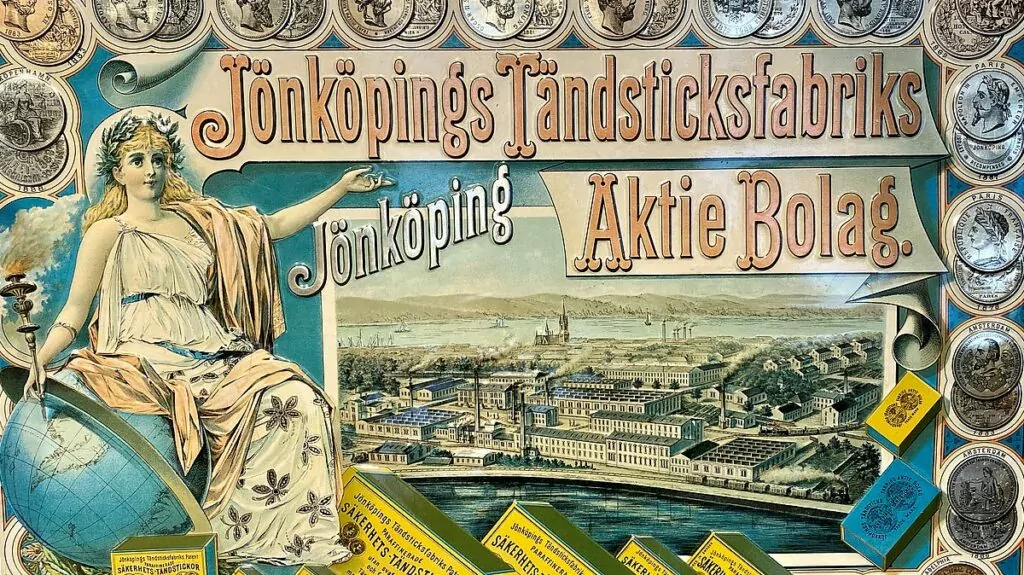
28. Europe's longest zipline is in Småland.
Europe's longest zipline track can be found in Sweden. At Little Rock Lake, deep in the forests of Småland, there is a 4.6 kilometre course. Sweden Zipline consists of four different courses located at Klavreström 50 kilometres northeast of Växjö.
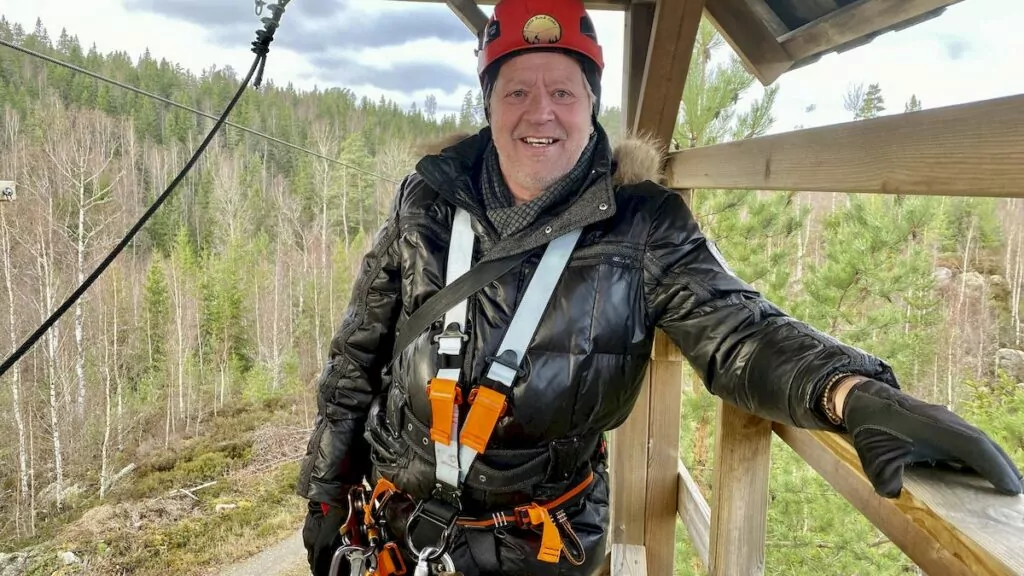
29. 165 million copies of Astrid Lindgren's books have been sold.
Astrid Lindgren's (1907-2002) books have been translated into 107 languages and sold 165 million copies, making them the most translated books in the world. Here you will find Pippi Longstocking, Emil in Lönneberga, The Children of Bullerbyn, Karlsson on the Roof, Madicken, The Salt Crow, The Lionheart Brothers and Ronja the Robber's Daughter.
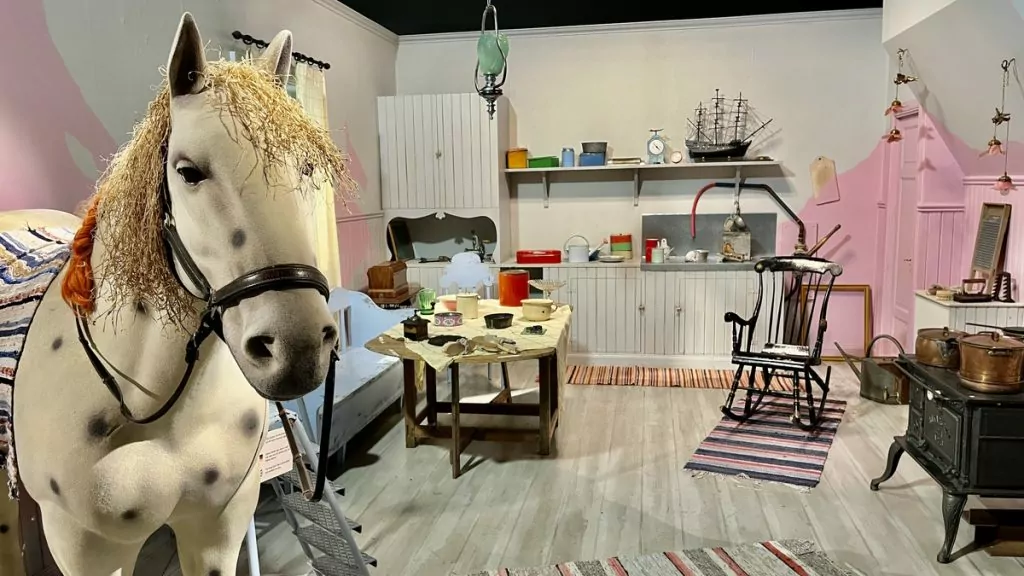
30. The ice hotel in Jukkasjärvi is the world's largest and also the world's first ice hotel.
Every year, ice is taken from the Torne River to create new design and architecture for a new ice hotel. When finished, the hotel will feature a bar, a church, and rooms and suites for over 100 guests. They are storing 10,000 tonnes of ice in blocks and 30,000 tonnes of snow in warehouses for the construction. Over 100 couples are married here every year and children are baptised at the Ice Hotel in the church. Go to the bar and have your vodka served in glasses made from ice from the Torne River, now you have a drink "in the rocks".
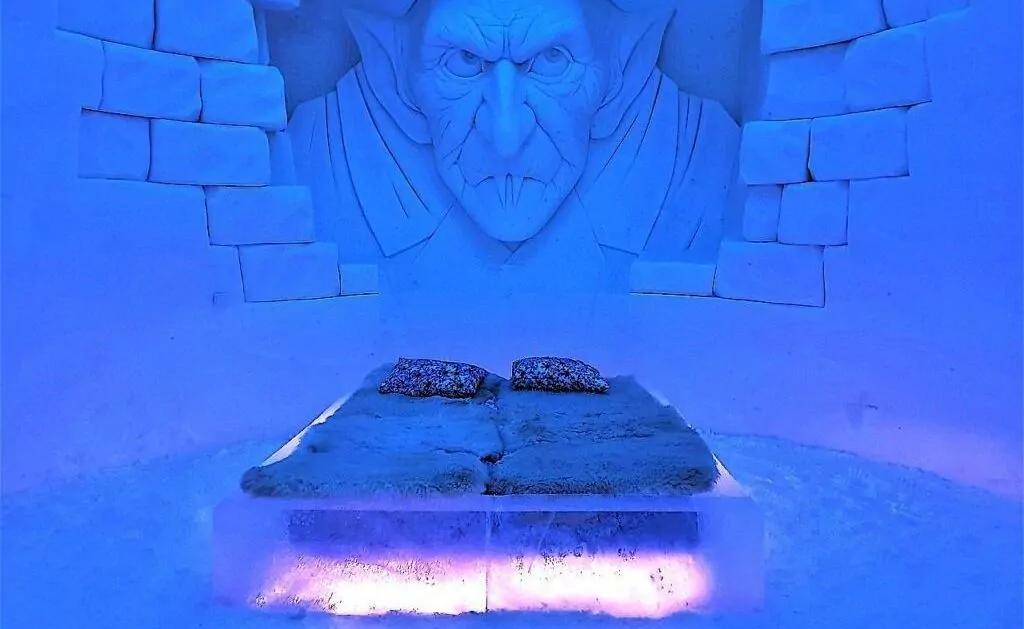
Facts about Sweden and some famous companies from Sweden
IKEA
The first IKEA opened in 1958 in Älmhult (Småland) and today (2020) there are 420 IKEA stores in 50 countries. In addition to furniture, 1 billion meatballs and 100 million sausages are sold annually at IKEA stores around the world. The company IKEA was registered in 1943 and the name IKEA comes from IK-Ingvar Kamprad himself, the name of the farm where he grew up E-Elmtaryd and the village A-Agunnaryd.
H&M
Hennes & Mauritz AB was founded in 1947 and sells clothes with the philosophy "fashion and quality at the best price in a sustainable way". If you count all the stores, H&M is the world's largest clothing chain. Originally, it only sold women's clothes and the company was called Hennes. Over time, the owner also bought a company that sold men's clothing and hunting equipment. This company was called Mauritz Widforss Handels AB. After that, Hennes changed its name to Hennes & Mauritz.
Ericsson
Founded in 1876, Ericsson is a world leader in communications technology and related services. The company has 115 000 employees. Its customers are located in about 180 different countries, but its headquarters are in Stockholm.
Spotify
Spotify Technology S.A. is a Swedish multinational company that has been providing a service for listening to streamed music and podcast programmes over the internet since 2008. Since 2015, Spotify is the world's largest online music service and in December 2020, Spotify had 345 million monthly active users.
Volvo
Operating since 1927, Volvo is the largest company in Sweden, producing lorries, trucks and buses. Headquartered in Gothenburg, Sweden, the company employs 95 000 people across 18 countries.
Skanska
Skanska is a long-standing project development and construction company dating back to 1887 and is now a multinational group with around 40,600 employees. The head office is located in Stockholm.
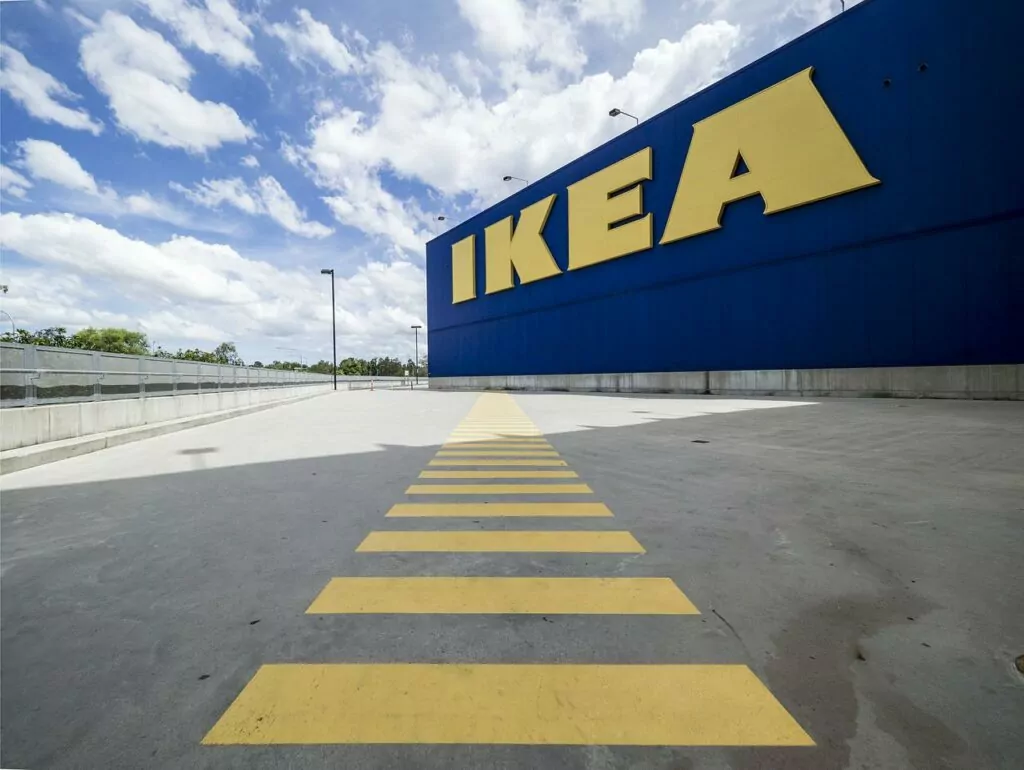
Facts about Sweden with major sportsmen/women from Sweden
- Boxing: Ingemar Johansson
- Wrestling: Mikael Ljungberg, Frank Andersson
- Curling: Anette Nordberg
- Bicycle: Jenny Rissveds
- Golf: Annika Sörenstam, Henrik Stenson
- Formula 1: Ronnie Peterson
- Handball: Isabelle Gulldén, Magnus Wislander
- FootballPia Sundhage, Henrik Larsson, Zlatan Ibrahimovic, Gunnar Nordahl, Lotta Schelin.
- AthleticsPatrik Sjöberg, Carolina Clüft, Stefan Holm, Daniel Ståhl, Ricky Bruch, Gunder Hägg, Christian Olsson, Kajsa Bergqvist.
- ice hockeyPeter Forsberg, Mats Sundin, Niklas Lidström, Henrik Lundqvist, Börje Salming, Håkan Loob.
- martial arts: Alexander Gustavsson
- Canoe: Gert Fredriksson, Agneta Andersson
- Cross-country skiingCharlotte Kalla, Gunde Swan, Sixten Jernberg, Thomas Wassberg, Torgny Mogren.
- Orientation: Annichen Kringstad
- Ping pong: Jan-Ove Waldner, Jörgen Persson, Stellan Bengtsson
- Pistol shooting: Ragnar Skanåker
- Equestrian sportsRolf-Göran Bengtsson, Peder Fredricson, Malin Baryard-Johnsson.
- ski-jump: Ulrica Knape
- Swimming: Sarah Sjöström, Therese Alshammar
- Slalom: Ingmar Stenmark, Anja Persson, Pernilla Wiberg, Frida Hansdotte
- Biathlon: Magdalena Forsberg
- Skating shoes: Thomas Gustafson, Nils van der Poel
- Speedway: Toni Rickardsson
- Tennis: Björn Borg, Stefan Edberg, Mats Wilander
- Trav: Stig H Johansson, Olle Goop
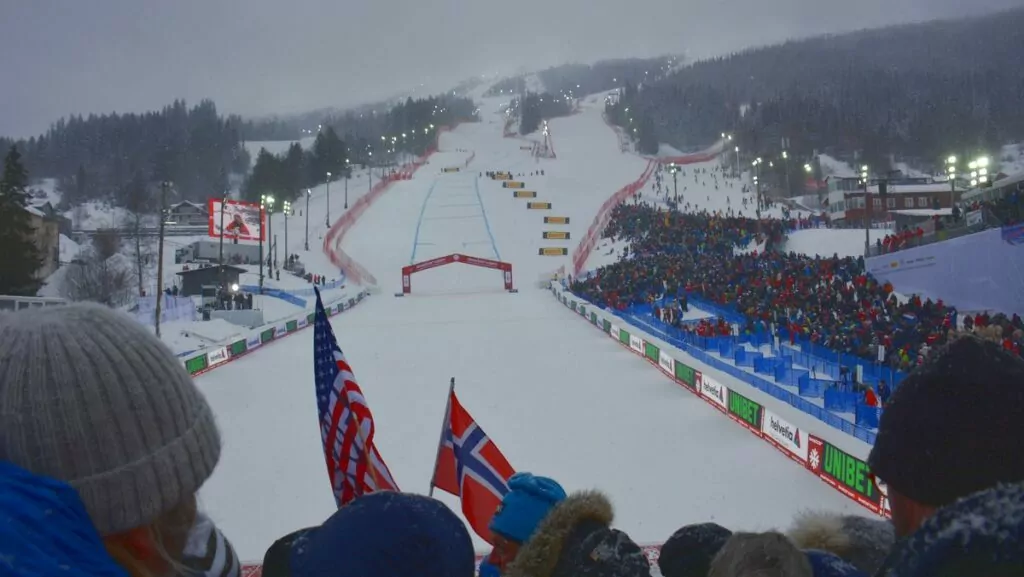
Some more brief facts about Sweden
- Sweden is the 5th largest country in Europe with a land area of 45 million hectares.
- Sweden has 48,000 km of coastline and 270,000 islands.
- In Sweden, we take off our shoes indoors
- In Sweden you go to "Systembolaget" to buy alcohol over 3.5 %
- Swedes must be 20 years old to buy alcohol at Systembolaget.
- Of the Swedish population, 52 % live in small houses and 42 % in flats.
- In Sweden, you can take 480 days of paid parental leave with your child.
- There are between 20-40,000 Sami people in northern Sweden.
- Sweden has 95 700 lakes larger than 100 x 100 metres.
- The right of public access means you can walk on private land.
- In the 1850s, life expectancy for men was 20 years and women 26 years.
- Sweden has a space station called Esrange, located in Jukkasjärvi.
- Sweden's oldest city is called Sigtuna which was founded around 980
- Sweden has second most McDonald's restaurants per capita in the world
- Sweden has won the Eurovision Song Contest 7 times (2023)
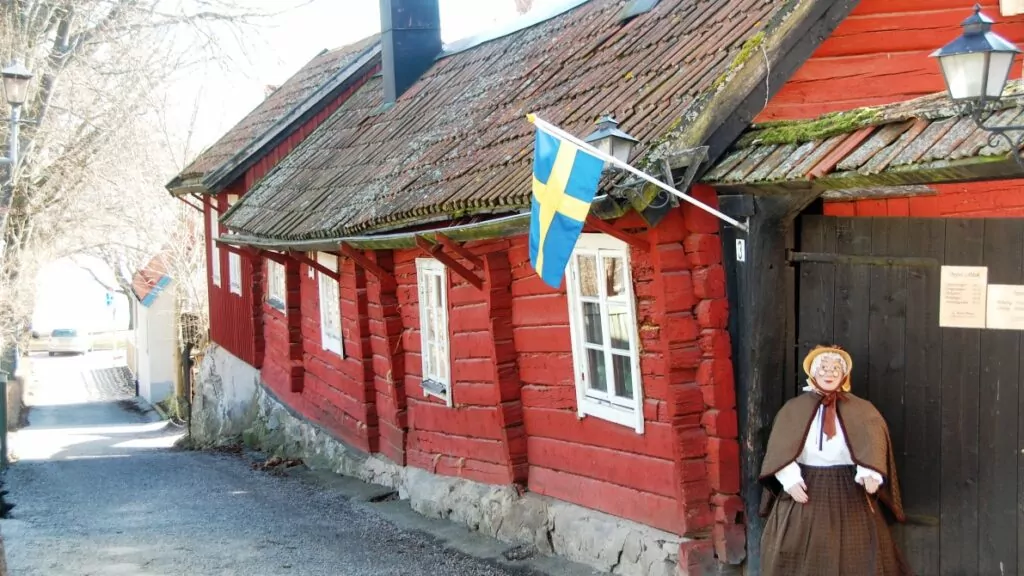
More fun facts about Sweden
- Falu koppargruva AB was founded in 1288 and is the oldest limited company in the world.
- The world's oldest organ is in Sundre Church on Gotland, dating back to 1370.
- Snus is typically Swedish and 1 million Swedes use 6200 tonnes of snus per year.
- Kullagatan in Helsingborg is Sweden's oldest street
- Swedes eat 78 kg of meat per year and the favourite is pork.
- Swedes eat around 15kg of sweets/year with a 500 % increase at Easter.
- Swedes eat 60 sausages with bread/year
- Swedes eat 40 million buns/year
- Swedes love wine, which accounts for 45 % of alcohol sales.
- Fika (drinking coffee) is a matter of course when you meet and at meetings.
- Top 20 most common surnames ending in 'son', except Lindberg
- Sweden's longest bench is 267 metres long and will be inaugurated in spring 2022 in Hjo.
- The world's largest Lucia train was organised in 2004 on the Sundsvall Bridge with 10,500 people.
- The Swedish word "lagom" has no direct translation into other languages.
- The word 'smorgasbord' has been borrowed from the English language.
Facts about Sweden with famous music
Here are some of our most famous groups/artists from Sweden: Zara Larsson, Avicii, Swedish House Mafia, Alesso, Robyn, Måns Zelmerlöw, Lykke Li, Abba, Roxette, Europe, Alcazar and Ace of Base.
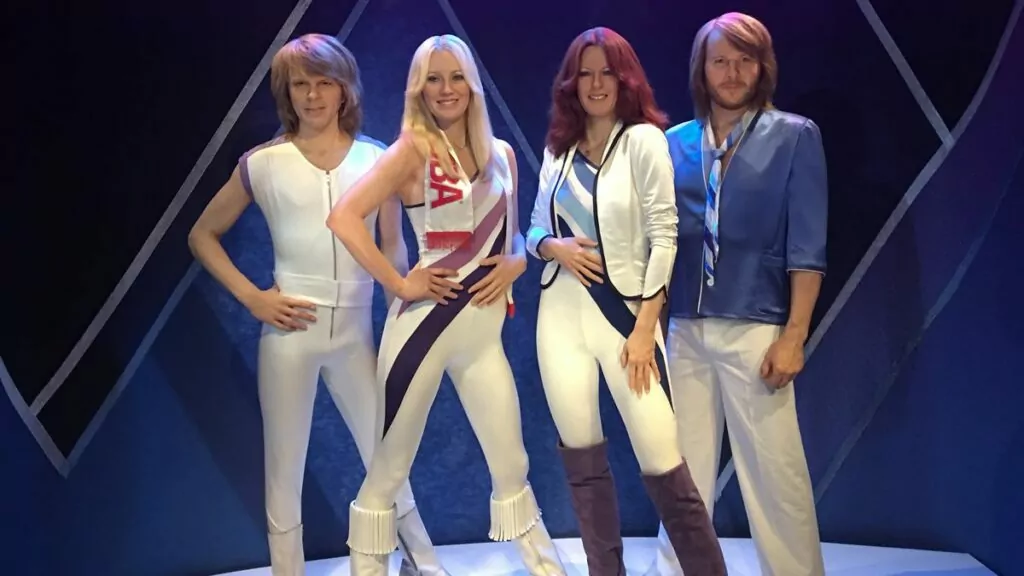
Facts about Sweden and the historical time axis
| Prehistory c. 12 000 BC-1050 AD. |
| Early Middle Ages 1050-1250 |
| The Folkung era 1250-1389 |
| Kalmar Union 1389-1520 |
| Older vascular age 1521-1611 |
| The age of empire 1611-1721 |
| The age of freedom 1719-1772 |
| Gustavian era 1772-1809 |
| Union and new constitution 1809-1866 |
| Industrialisation 1866-1905 |
| Early 20th century 1905-1914 |
| First World War 1914-1918 |
| Interwar period 1918-1939 |
| Depression 1929-1939 |
| Second World War 1939-1945 |
| Post-war period 1945-1967 |
| The end of the Cold War 1968-1991 |
| The present 1991- |
Some historical facts about Sweden
- In 3200 BC, people were skiing and the world's oldest ski, the Kalvträsk ski, was found in Skellefteå.
- 100-700 BC large burial mounds are built along the Swedish coastline
- 776 B.C. first Olympic Games
- In 400 BC, Sweden experienced a real cold spell.
- 500 AD Uppsala mounds made or graves
- 790-1050 Vikings erect rune stones in southern and central Sweden and Vikings build the Kåsaberg ship Ale Stones
- 800 birka in Lake Mälaren is founded
- 850-1080, mining of Stora Kopparberg starts in the Falu mine.
- In 1008, Sweden's first Christian king, Olof Skötkonung, is baptised.
- 1104 The Archdiocese of Lund is established
- 1143 Alvastra and Nydala monasteries are built.
- 1200 new building material arrives in Sweden
- 1248 introduction of celibacy for priests in Sweden at the Skänninge meeting.
- 1250 the Hanseatic League is formed
- 1252 Stockholm is founded
- 1285 Gotland becomes Swedish
- 1317 King Birger imprisons his brothers at the Nyköping feast.
- In 1335, the Charter of Skara abolishes slavery in Sweden.
- In 1347, the world's oldest company, Stora Kopparberg, receives a letter of privilege.
- 1435 Sweden's first parliament is formed and Engelbrekt becomes governor.
- 1477 Uppsala University is founded
- 1483 Sweden's first printing press opens
- 1500 silver starts to be mined in Sala silver mine
- 1526 the New Testament is published in Swedish
- 1541 the Bible is published in Swedish
- 1609 Petrus Kenicius from Baggböle becomes Swedish archbishop.
- 1618-1648, the 30 Years' War takes place
- 1622 The city of Umeå is founded
- 1668 Sweden's and the world's oldest national bank opens
- 1697 Stockholm's Tre Kronor castle burns down
- 1714 Umeå is burnt for the first time by the Russians.
- In 1721, the Swedish Baltic Empire is lost at the Peace of Nystad.
- 1732 Linnaeus visits Umeå during his trip to Lapland.
- 1808 Sweden loses Finland at the Battle of Oravais.
- 1837 John Ericsson invents the propeller in Sweden.
- 1862 Alfred Nobel invents dynamite in Sweden.
- 1888 Sundsvall and Umeå burn down
- 1914-1918: the First World War
- 1939-1945, the Second World War is underway
Sweden's largest cities in 2021
- Stockholm
- Gothenburg
- Malmö
- Uppsala
- Linköping
- Örebro
- Västerås
- Helsingborg
- Norrköping
- Jönköping
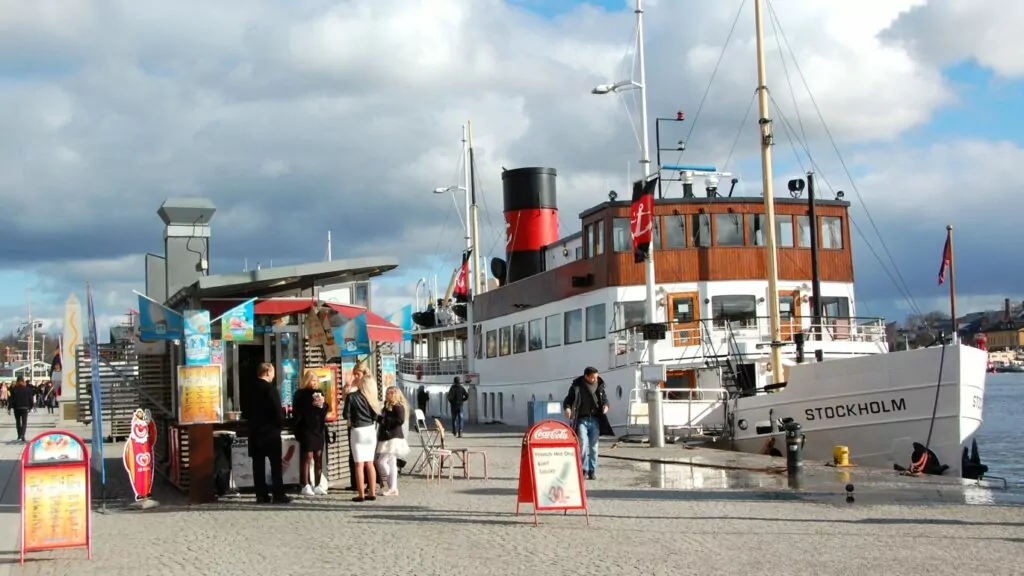
Information and facts about Sweden
- Country: Sweden
- Capital city: Stockholm
- Population in 2023: 10,521,990 inhabitants
- Population of the capital in 2021: 2,391,990 in Stockholm
- Regions: Norrland, Svealand, Götaland
- County: 21 counties in Sweden
- Landscape: 25 landscapes
- Highest mountain: Kebnekaise at 2 106 metres
- Longest watercourse: Göta river with 746 kilometres
- Land area: 447 435 km2
- Borders: 2 205 km (border with Finland: 586 km, Norway: 1 619 km)
- Ice cover and glaciers: 283 km²
- Lakes and rivers: 40 124 km²
- Coastline, mainland: 11 530 km
- Biggest lake: Lake Vänern - 5 648 km2
- Highest building: Turning Torso 190 metres high
- Biggest sports: Football and golf
- Agricultural land and gardens: 25 970 km²
- Forests and plantations: 280 640 km²
- Deepest lake: Hornavan in Lapland with 221 metres
- Deepest place: Bratten in Skagerrak with 560 metres
- Currency: Swedish krona (SEK)
- Official language: Swedish. There are also a few official minority languages (Finnish, Yiddish, Meänkieli (Tornedalian Finnish), Romani and Sami).
- Member of the EU: Since 1995
- Member of NATO: No
- National anthem: "You old you free"
- Time zone: CET (UTC +1), summer time CEST (UTC +2).
- Country number: +46
- Country code: SE, SWE
- The Swedish flag: It consists of the colours yellow and blue, where the rectangular background is blue and the cross is yellow.
- National Day: 6 June (National Day)
- Governance: Constitutional monarchy
- Parliament: Parliament (349 seats)
- Membership in the EU: Since 1 January 1995
- Membership in NATO: No
- Head of State: King Carl XVI Gustaf
- Head of Government (November 2021): Prime Minister Magdalena Andersson(Social Democrats)


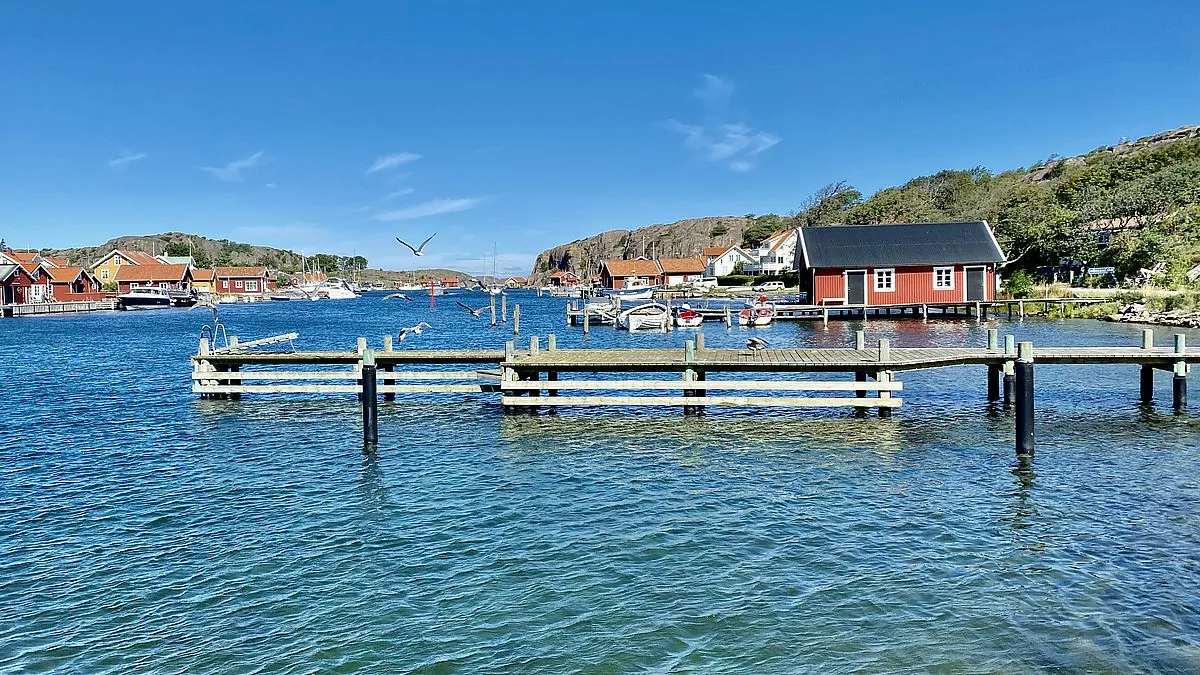






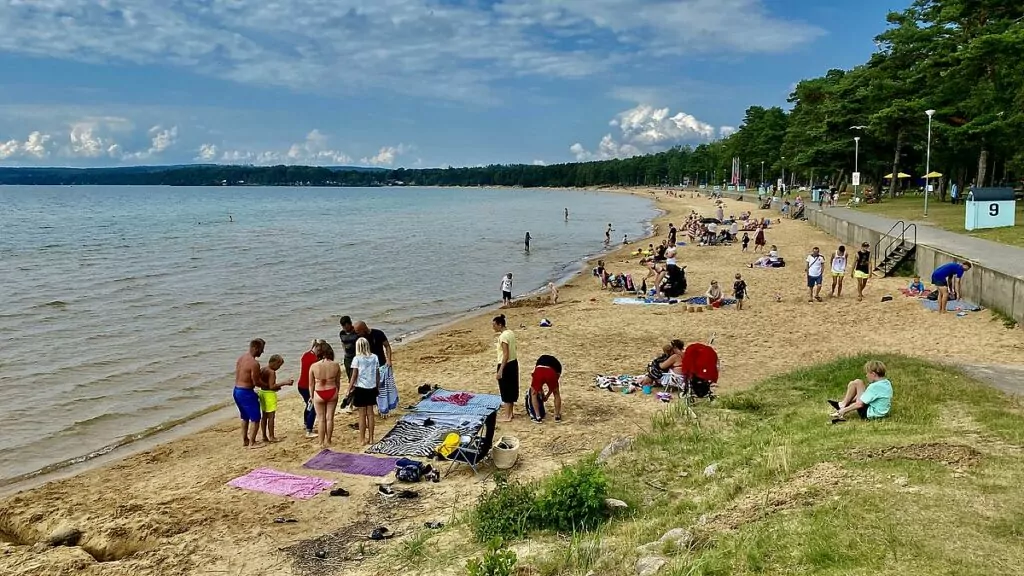
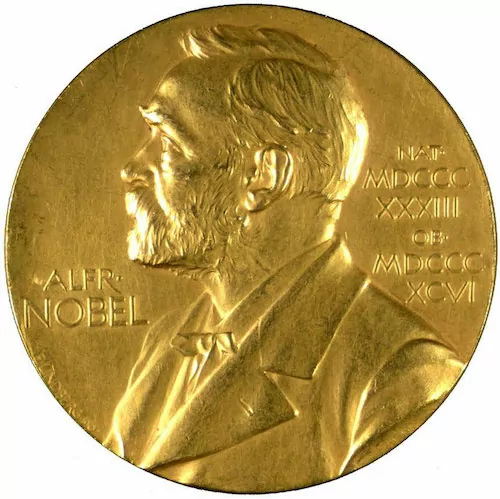
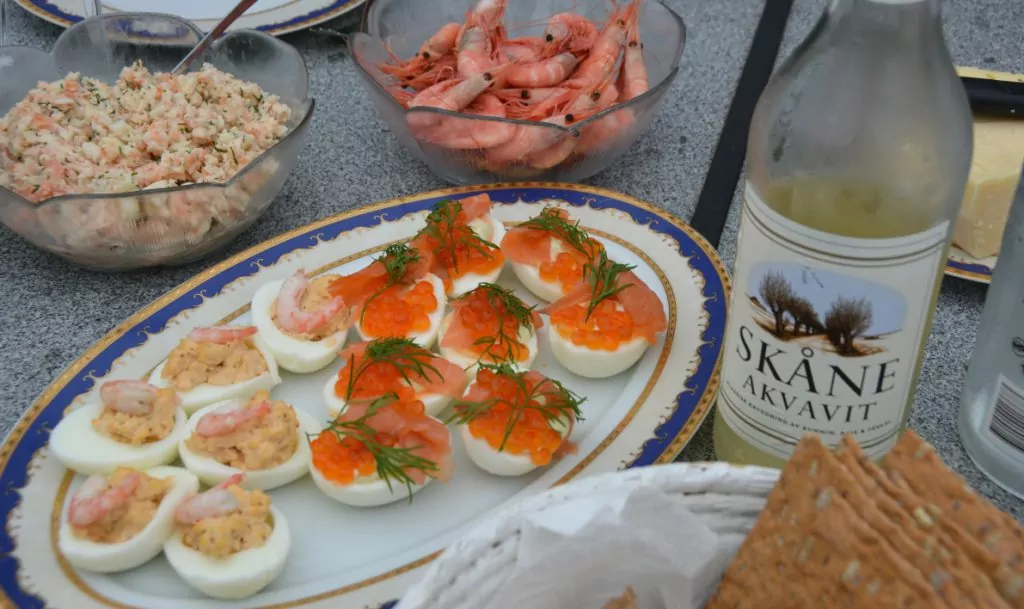
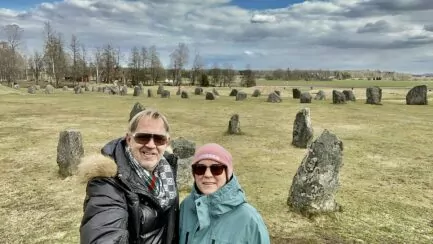
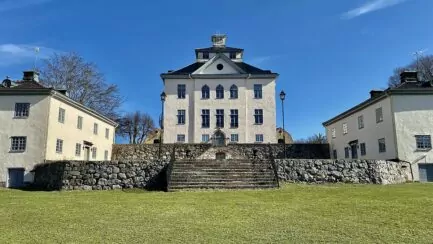



Annar Aas says:
What a fun encyclopaedia you gave us. And almost everything was correct!
26 May 2022 - 9:36
Helena says:
Peter loves collecting facts, so this type of post is his work 😉 If you notice any inaccuracies, please let us know! It happens sometimes, of course, but as soon as we notice any inaccuracies, we'll correct them 🙂.
26 May 2022 - 9:48
Matts Torebring says:
If Peter develops his interest further, it will certainly result in a series of books. Although this post was mega-long, it is probably just the preface to the first book. Sweden is certainly quite unique and has a lot in its history.
26 May 2022 - 10:25
Frizz says:
We still don't know what prompted the surrender at Suomenlinna. To call it treason and selling one's soul to the Russians - well, no. We don't know that. Nobody knows, so I think it feels wrong. A big mistake/blunder yes, and a huge disaster - but treason probably requires an ulterior motive that no one has been able to prove. Went on a guided tour of Suomenlinna only a week ago and have read a lot about the place.
Moreover, Sweden may not border Åland in this way, Åland is a province in Finland. Then perhaps it should also be mentioned that Sweden borders Ostrobothnia etc. Interesting in general. Have a nice trip in Germany!
26 May 2022 - 15:57
Peter says:
Hello!!! I know there are some different information but the Russians came over an impregnable fortress with 2000 men against the fortress's 7000 men. In Sweden it was a huge setback because here had invested a lot of money and something was very clever about how they could get over the fortress. Cronstedt has given away the fortress and opened the gates and it must have come from him from everything I have read.
Åland is also a self-governing island and that's what I assumed and what Swedes recognise. If I don't write Åland, someone will instead write "why don't you include Åland".
29 May 2022 - 17:18
BP says:
My goodness what a marathon post. Must admit that some bits were news to me. History you know. But the sour cream got to be in a corner:-)
What research! That post must have taken at least a week to create. WOW!
26 May 2022 - 20:13
Peter says:
Hi BP :-) That post has been coming in batches for two months. I have several in the pipeline, which I am slowly collecting and also more about what you can do in several countries. I cannot write for the day, because I drive, cook, fix, keep in touch with all clients, take care of the car, pay bills, etc. Hence, I can never write every day but that arrangement works for us. Glad you still read our little site BP.
Take care of yourself.
29 May 2022 - 17:06
Monica says:
Hi Peter! Interesting reading and a lot of work you put in. We have learnt about the 1850s, when Sweden was considered the poorest in Europe, but today there are mixed opinions about it.
I read that the average life expectancy for women was around 40 years, difficult to find for men but in some places it says 37 years and applies to both sexes. And, it says that a single person lived to 90 years!
And there I come in😄one of my ancestors or grandmothers on my father's side Greta Lisa was born in 1759 and died in 1848, 89 years! Lived in Uppsalatrakten. Her husband Johan died a little younger in a drowning accident.
Then I have Per August, my grandmother's father, who was born in 1851 and died in 1938, aged 87.
And there's a lot of interesting stuff, my cousin did some genealogical research and I only looked into it now. A lot of things you think about and try to understand how life happened.
And they all lived in Uppland, maybe something special about that😊.
Continue to enjoy your journey.
31 May 2022 - 22:20
ture says:
showed everything about Sweden already! gets 10/10
06 December 2023 - 9:48